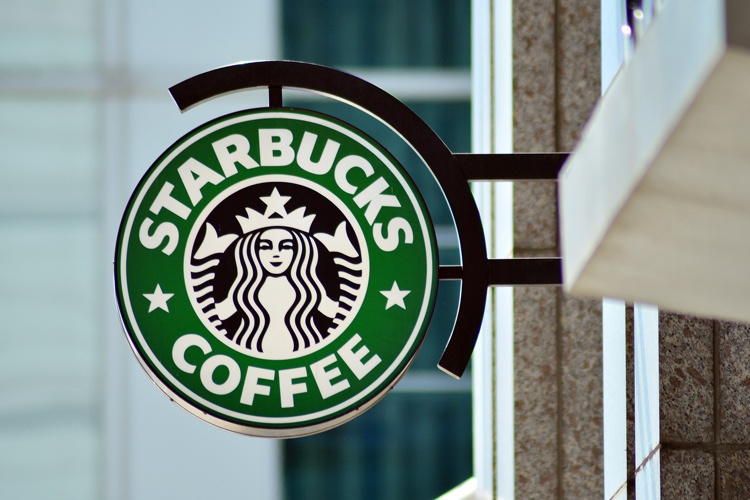Justice is blind, at least theoretically. Frequently we see big-guy versus little-guy cases end overwhelmingly in favor of the big-guy due to sophisticated legal tactics utilized by teams of lawyers. In the face of such resources, it’s easy to understand why David toppling Goliath was the upset of the millennium. But even with such scenarios, the laws are the laws. Perhaps nowhere was this demonstrated more clearly than in the Charbucks vs. Starbucks decision.

David Wins
A federal appeals court recently rejected a request by Starbucks to stop the manufacture of “Charbucks” coffee by a small New Hampshire Roaster. The decision on the twelve year-old case allows Wolfe’s Borough Coffee to keep selling “Charbucks Blend”, “Mister Charbucks”, and “Mr. Charbucks” coffee. Laura Taylor Swain, a US District Judge in Manhattan ruled that Charbucks was “only weakly associated with the minimally similar” Starbucks mark.
This practice, while not uncommon among premium and luxury brands, generally does not result in a victory for David. However, the heart of Starbucks defense had some critical flaws that ultimately played in Wolfe’s Borough’s favor. Starbucks brought to the table a six-hundred person phone poll that found the number one association with Charbucks to be Starbucks. Upon further examination, the 2nd Circuit court determined that the survey was flawed, drawing its conclusions based on how customers perceived Charbucks in isolation, not in a real-world context. While 39.5% thought of “Starbucks” or “coffee” when polled, only 4.4% said “Starbucks” or “coffee house” when asked who might sell the product. The most common response was actually “grocery store”. Raymond Lohier of the Circuit court wrote that, “The fact that more survey participants did not think of Starbucks upon hearing Charbucks reinforces the district court’s findings that the marks are only minimally similar.”
Christopher Cole, a lawyer at Sheehan, Phinney, Bass & Green, who represented the small coffee shop, lauds the result. The decision, he says, “flows from the dramatic dissimilarity between how the different products actually appear in commerce and are seen by consumers.” Starbucks is ultimately respecting the decision.
Reading the Decision
In the wake of this decision, some critical thoughts come to mind. First is the necessity for a sound legal defense when leveraging trademark rights. The protections afforded by registration require sufficient legal evidence for enforcement and failing to fulfill this requirement can lead to costly, wasteful, and, perhaps most importantly, unsuccessful litigation efforts. The second is that this case enlightens separate lessons for different sized entities.
For large businesses, this should come as a cautionary tale. Legal channels still necessitate sufficient proof for a successful defense and simply finding objection with audibly similar marks may not be enough to determine the outcome of a suit. For larger entities, care should be taken to identify commercial infringement or customer confusion. If neither of these exists, then the pursuit of a trademark lawsuit can lead to a dead end. This is not to say that legal protections are not worth pursuit, but a flawed telephone survey with a small sample size constitutes such weak evidence that litigation could have been considered unwise from the get-go.
In addition, the case demonstrates the need for large businesses to identify their commercial interests and brand associations in all their forms when filing trademark applications. The aural cues and association with coffee elicited by “Charbucks” represent considerations that could have been made when the international coffee house filed its trademarks. College coaches, for example, have gone so far as to trademark not only their names, but phrasing, nicknames, and any other marks that may infringe or dilute their trademark. This kind of forethought can prevent dilution and protect commercial interests prior to encounter of a scenario like the one mentioned here.
For small businesses, this event should represent a catalyst for action. With local businesses especially, the scope of branding and marketing concerns tends to be limited to city, state, or region. However, with advanced search indexing, Google Alerts, and powerful policing agencies in the fray, no infringing mark, big or small, is safe from litigation. The advantage for small businesses lies in their equal right to trademark protection.
The Value of Protection
The legal institutions of trademark and copyright represent a chance for David to fight Goliath on a level playing field. Commercial dilution, brand confusion, and other concerns are tools of the trademark holder that can protect your brand as it grows from Main Street to Wall Street. Identify your intellectual property and key elements of your brand and seriously consider trademark registration. Furthermore, after obtaining said trademark, make a practice of regularly policing and enforcing it. The task can seem arduous for smaller businesses with limited time, staff, and resources, but doing so can avoid a deleterious dispute in the future and provide income in the form of licensing and royalties.
In addition, take additional trademark registrations into account as the identity of your brand grows. Your shop may be a corner staple for the time being, but as you spread into online retail, the potential for confusion and trademark dilution is real. Consider the aspects of your identity and make accommodations to alternative types of expression or display in their myriad forms. It is better to register a mark that sees no infringement than to fail to register a mark that undoes your brand image.
And while Starbucks legal teams are likely nonplussed by the decision, this case represents the potency of trademark protection, regardless of organizational size. If Wolfe’s Borough can beat the green mermaid, than any business, large or small, would do well to consider their registration options of not only specific marks, but similar marks that threaten commercial interest. Your son may run the cash register, your best friend may keep the numbers, but the law can maintain your peace of mind, whether you’re a large conglomerate or a mom-and-pop shop.

